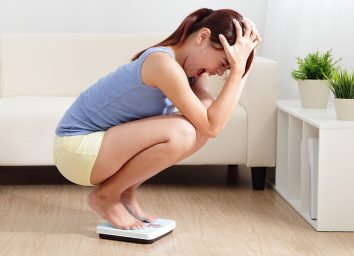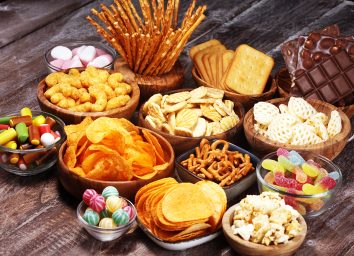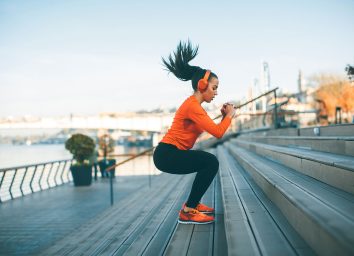19 Secret Reasons You Gained Weight This Week
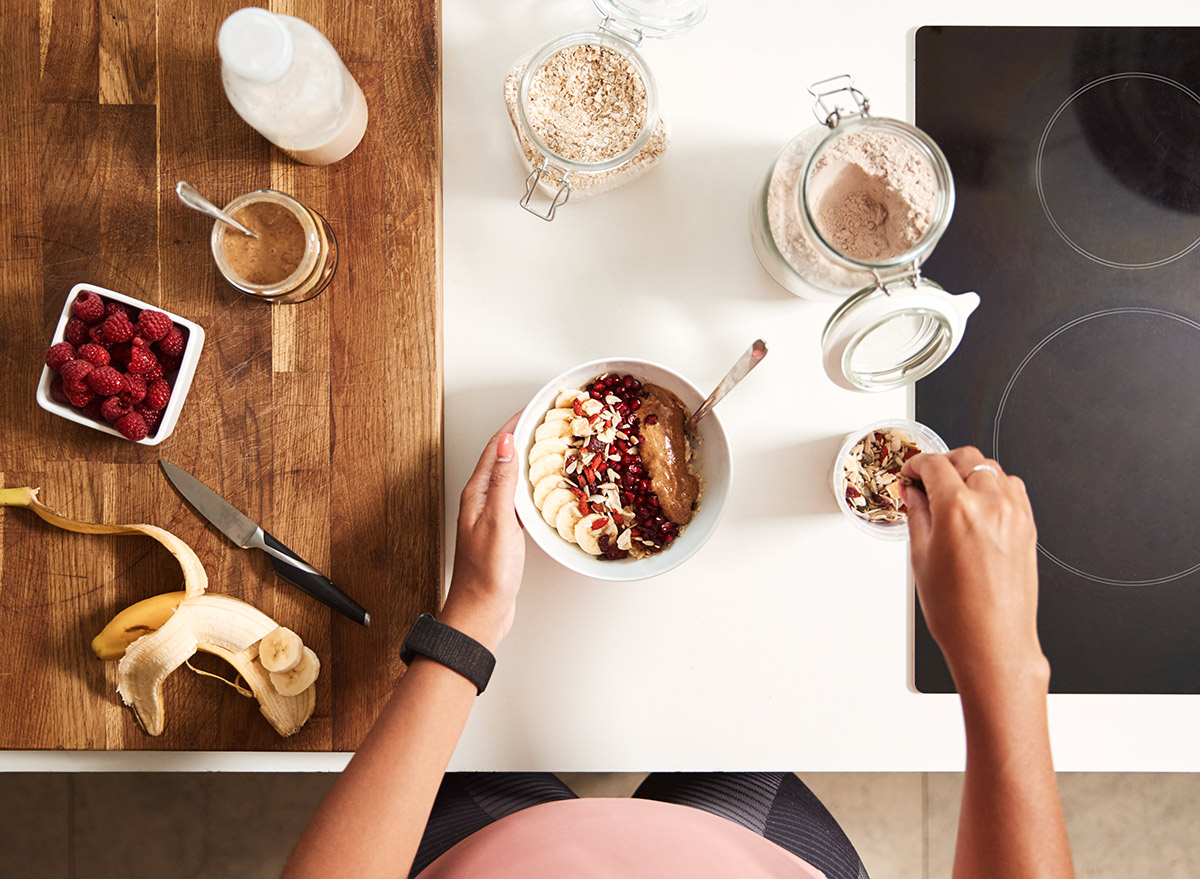
How many times has this scenario happened to you? You weigh yourself Monday morning, thinking you finally lost those pesky three pounds—only to see that they’ve crept back on by Friday. Or worse, you gained weight that you hadn’t even lost in the first place! What gives?
First of all, weight fluctuation is totally normal. In fact, your weight can easily fluctuate up to five pounds depending on what eat and other lifestyle factors, says Alexandra Napoli, a holistic health coach. But it happens to everyone.
Find out the secret problems that are causing the scale to rise by the end of the week, plus check out these The 7 Healthiest Foods to Eat Right Now.
You went to the gym
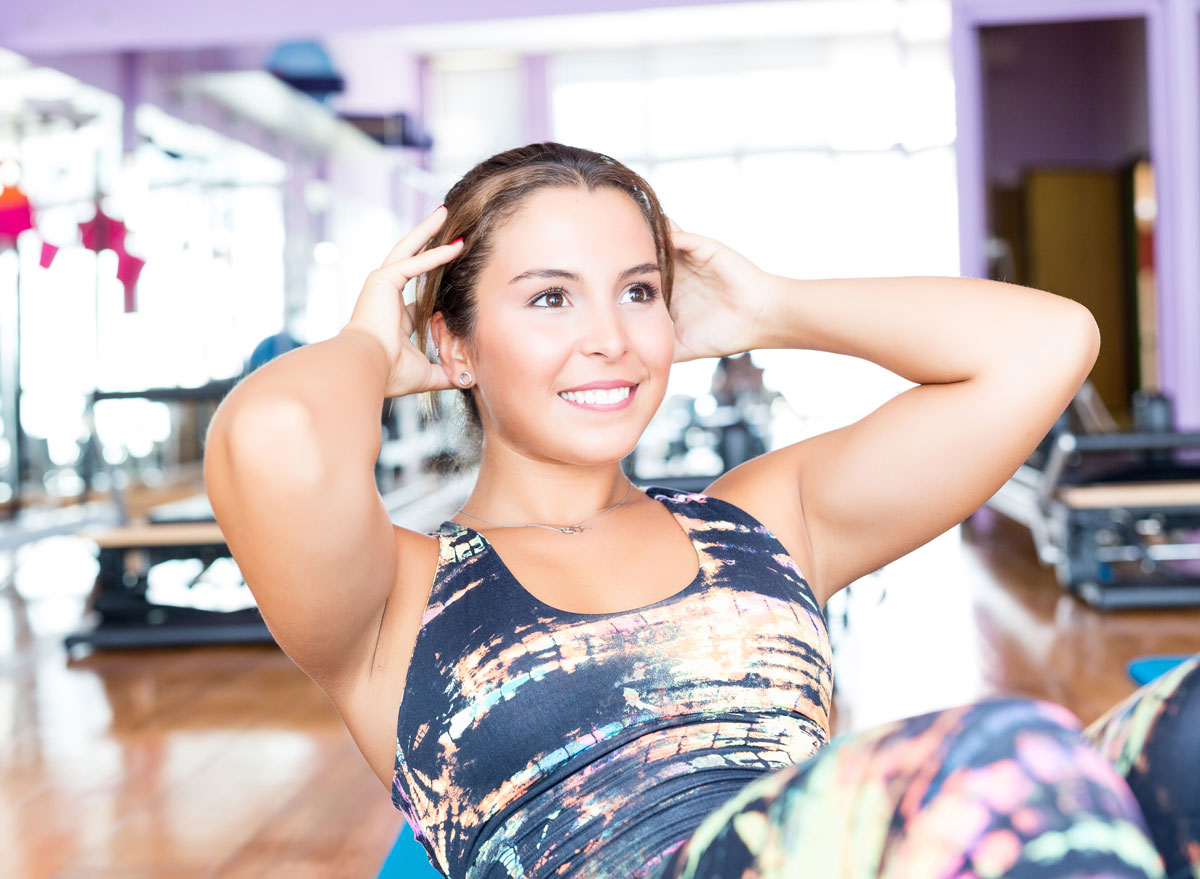
There are very few exceptions as to why you’d want to gain weight, but muscle is one of them. So, if you went to the gym and saw the scale tip a little, pat yourself on the back. “Muscle weighs more than fat because it’s got a lot of water in it,” says Abbey Sharp, RD, owner of Abbey’s Kitchen. Gaining more muscle means you’re boosting your metabolism and ultimately, burning fat. So that higher number on the scale could actually account for fat loss! For more smart ways to fire up your internal fat-burning system, don’t miss these 50 Best Ways to Boost Your Metabolism!
You had bathroom troubles
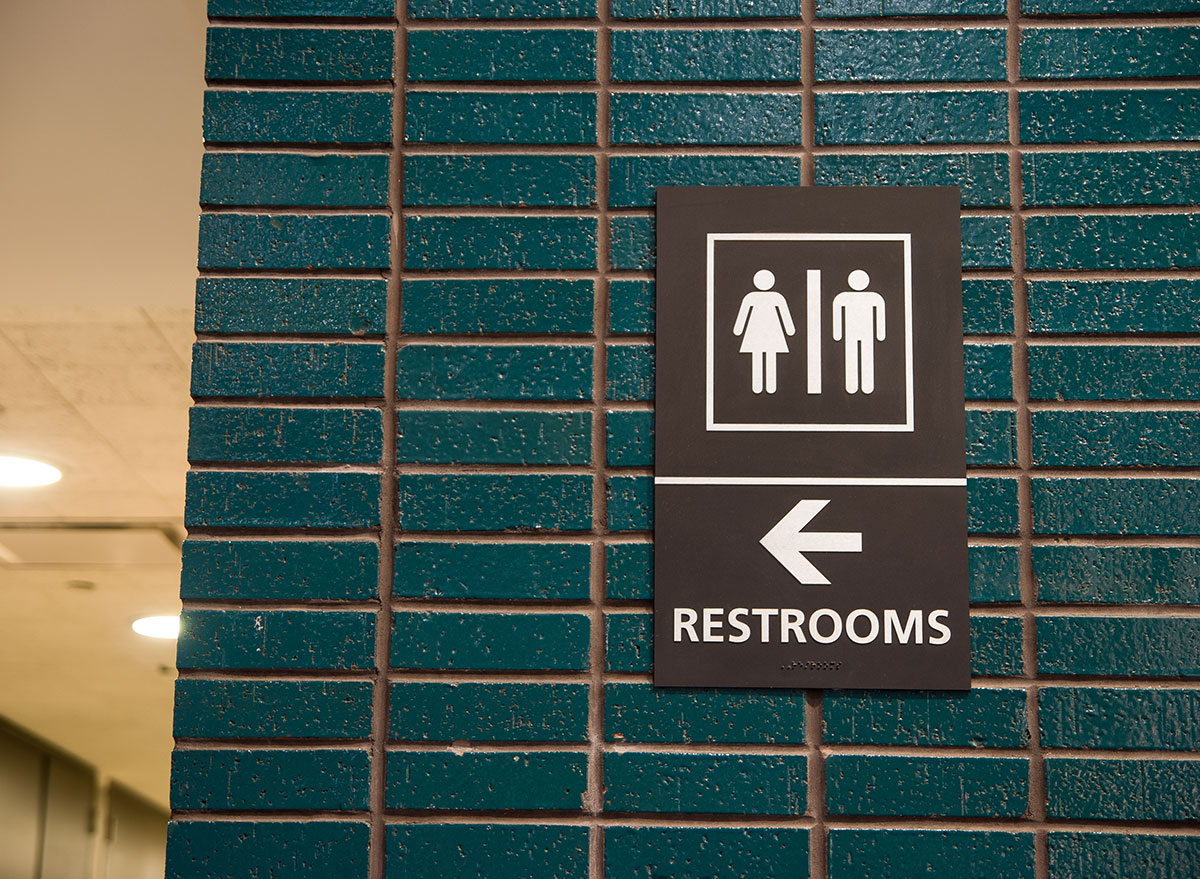
Any bowels sitting in your system could be what’s tipping the scale says Nazzoli. “Your body has 30 feet of digestive track so when it’s full, it adds a lot of density to your body,” says Napoli. Therefore, if it’s been a while since you had to “go,” the waste sitting inside of you could be adding to your weight gain. It’s one of the things that can happen to you when you don’t get enough dietary fiber.
You didn’t drink enough water

Adequate water intake is essential for all your body’s functions, and the more you drink, the better your chances of staying thin. In one study published in the journal Obesity, dieting participants who were instructed to drink two cups of water before each meal lost 30 percent more weight than their thirsty peers. And that’s only one benefit of drinking water; that’s why you need to know What Happens to Your Body When You Drink Water.
You ate too many salty foods
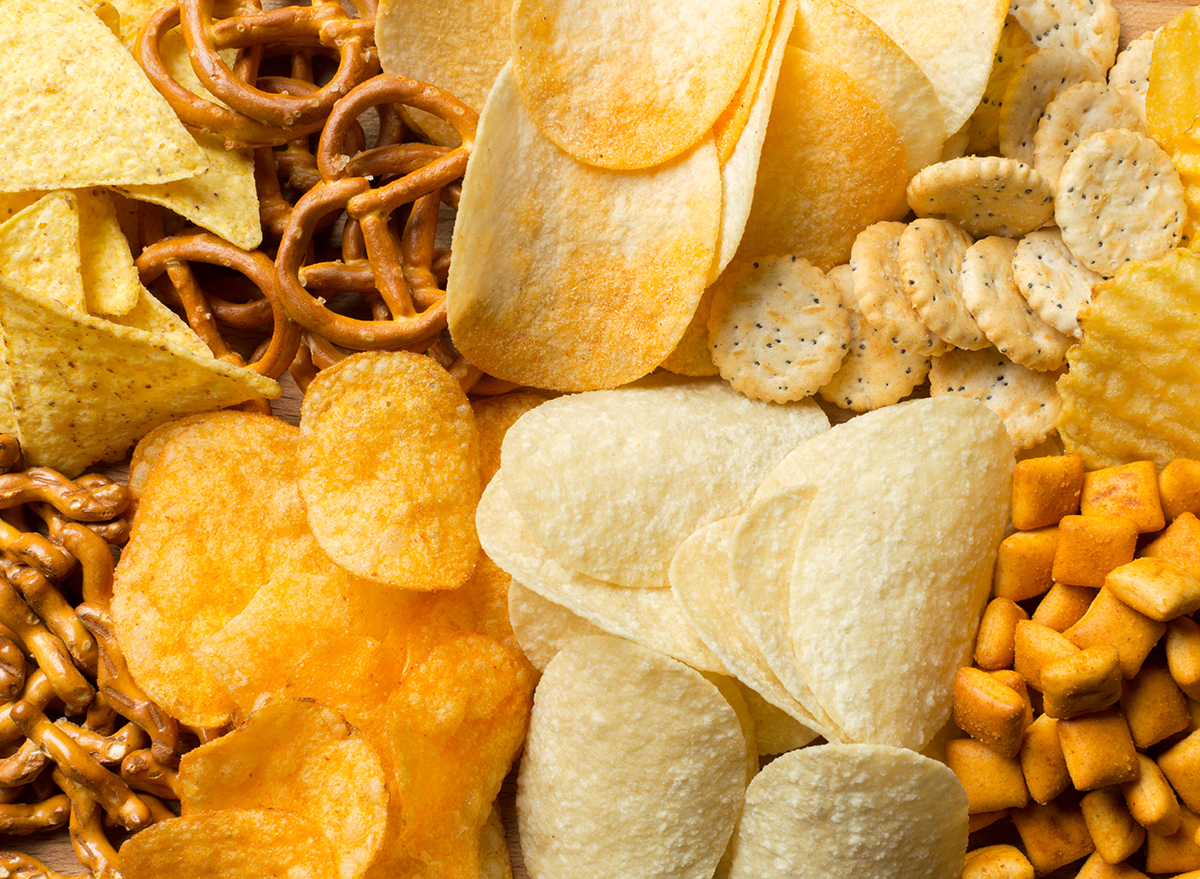
French fries, potato chips, soy sauce—snacking on these foods makes your body hold on to excess water, which is why you feel a little bloated afterward. “Your body reacts to higher levels of sodium by storing more water so it can keep sodium blood concentrations on a healthy, balanced level,” says Sharp.
And just so you know, sign up for our newsletter to get the latest food news delivered straight to your inbox.
You opted for a later bedtime

You better think twice before staying up to watch an extra episode of Game of Thrones or spending time on Facebook. A five-year study from the University of California, Berkeley tracked the bedtime habits of 3,300 teens and adults and found that for every hour of sleep they lost, they gained 2.1 points on the BMI index. Maybe a sleep diet isn’t such a bad idea!
In fact, even losing as little as 30 minutes of sleep is hazardous to your waistline. In a recent study, researchers analyzed more than 500 participants’ weekday sleep diaries and found that losing a mere 30 minutes of shut-eye increased their risk of obesity by 17 percent! Even mild sleep deprivation causes ghrelin (the hunger-stimulating hormone) to go into overdrive while simultaneously reducing levels of leptin (the hormone that suppresses appetite). In turn, this stimulates hunger even when you’re full which can lead to overeating and weight gain.
You went out drinking
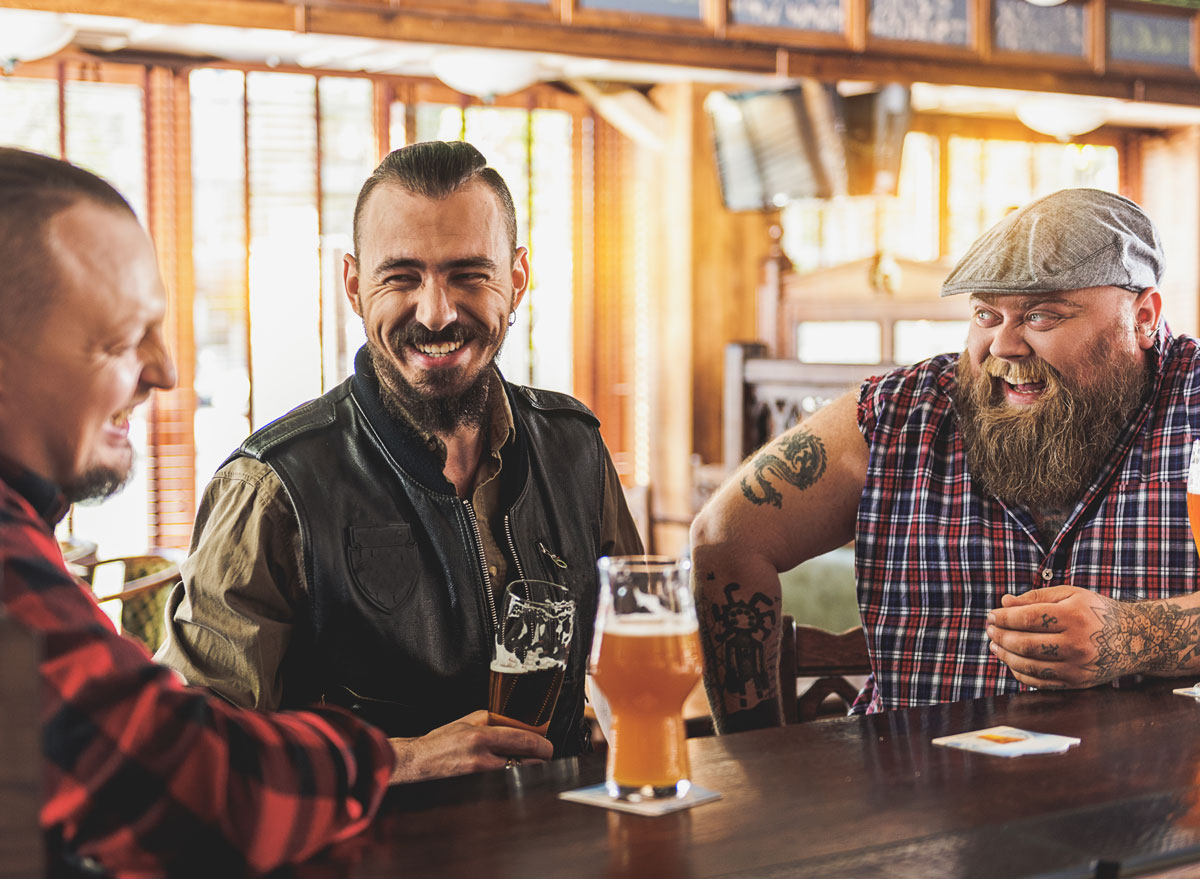
Ever notice how you feel a little heavier and puffier after a night of drinking? Well, there are three reasons, First of all, most alcohol is heavy in carbs, which means you’re retaining water just like you would when you’re eat pasta. And if you’re one to pound down more a couple of drinks each night, then you’re doing even more harm to your waistline. When you drink a lot of alcohol, it builds in the bloodstream and restrains an antidiuretic hormone that causes your kidneys to discreet a diluted pee, with doesn’t contain any electrolytes like sodium, says Sharp. So the sodium ends up staying in your system and makes you retain more water, leaving you with a morning-after bloated stomach along with that nasty hangover.
Also, let’s not forget that drinking gives you the case of the drunchies. When you’re craving food after a night of pounding down drinks, Sharp says that people tend to go for more salty foods.
You forgot to eat
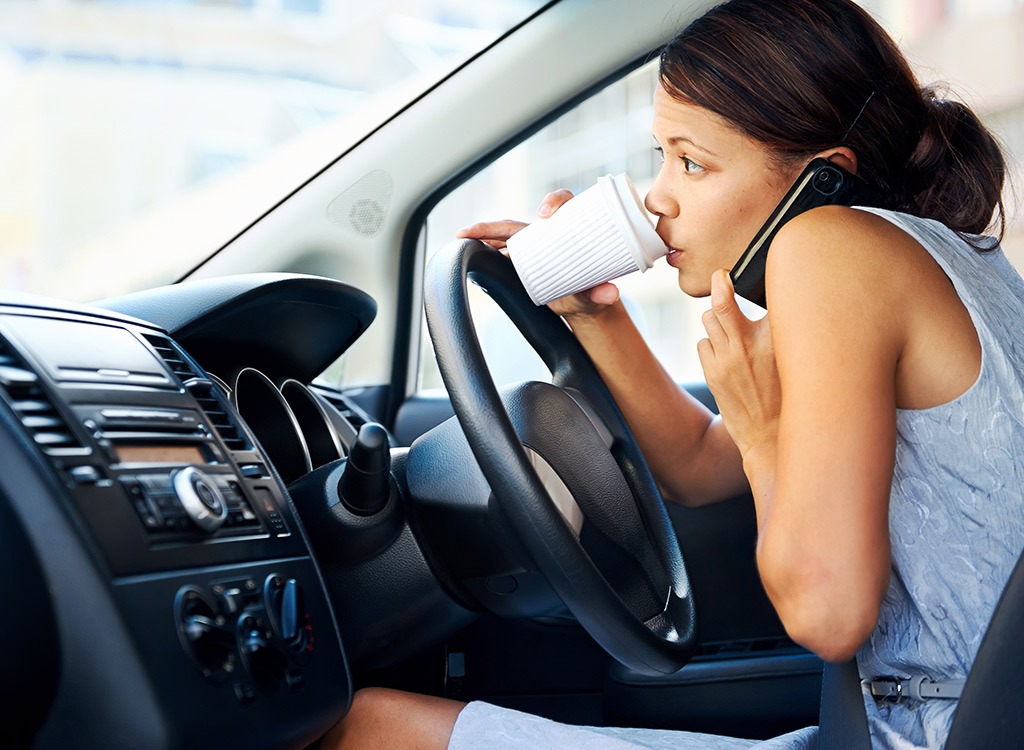
Sometimes, the day just gets to us—and when we’re home from a long day of work, we just want to hit the bed. When you eat far too few calories, it can cause your body to go into survival mode and also slows the rate of your metabolism. Registered dietitian Lisa Moskovitz, RD, CDN of the New York Nutrition Group explains this by saying, “Many people wrongfully believe that eating as few calories as possible is the best solution. Not only can this lead to numerous nutritional deficiencies as the body is getting less food overall, it can actually have the opposite effect on weight loss.”
Something about your routine changed
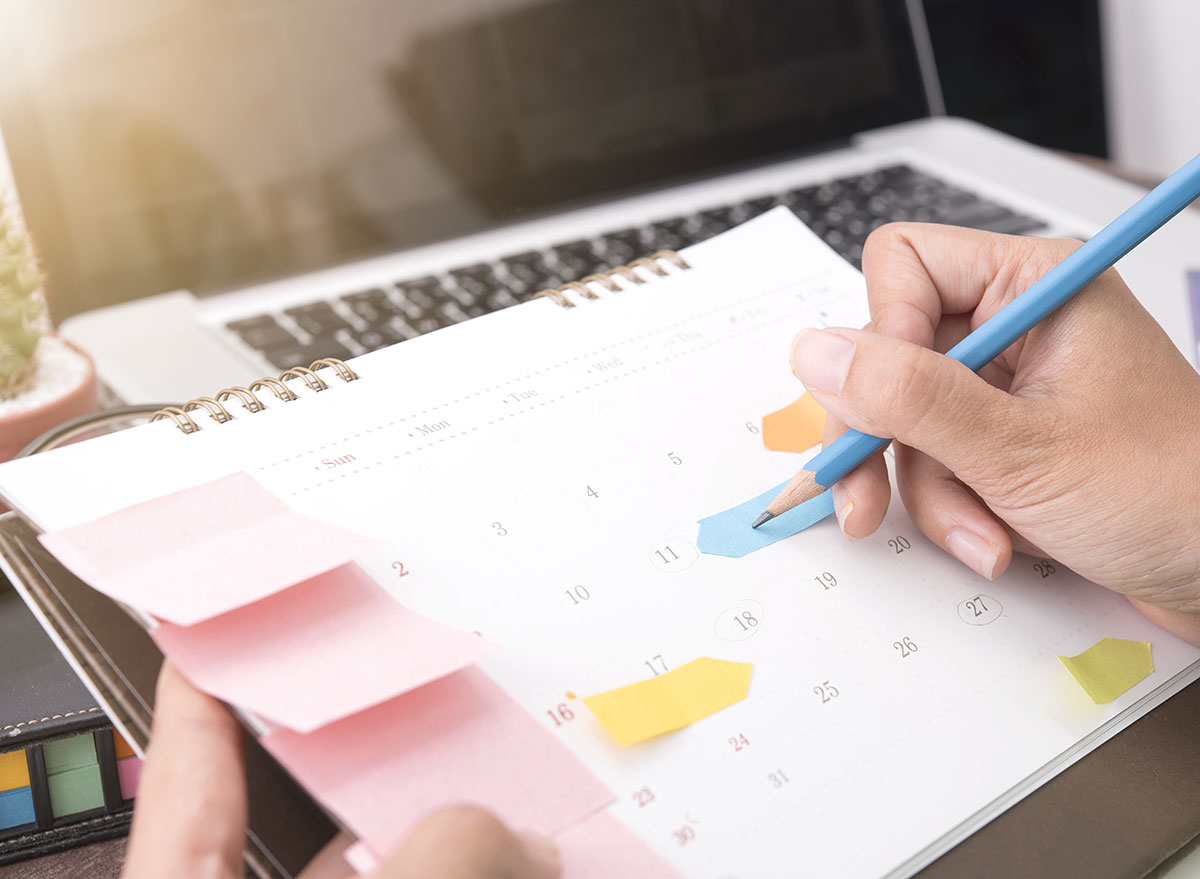
Maybe you moved and have less stairs to climb in your house. Maybe it was your birthday and you had cake every day. Maybe you went on vacation. Whatever it was, ask yourself if this is a permanent change or a temporary one—and what that might mean for your body goals. Regain control by implementing these 30 Healthy Habits Fit People Live By.
You overate
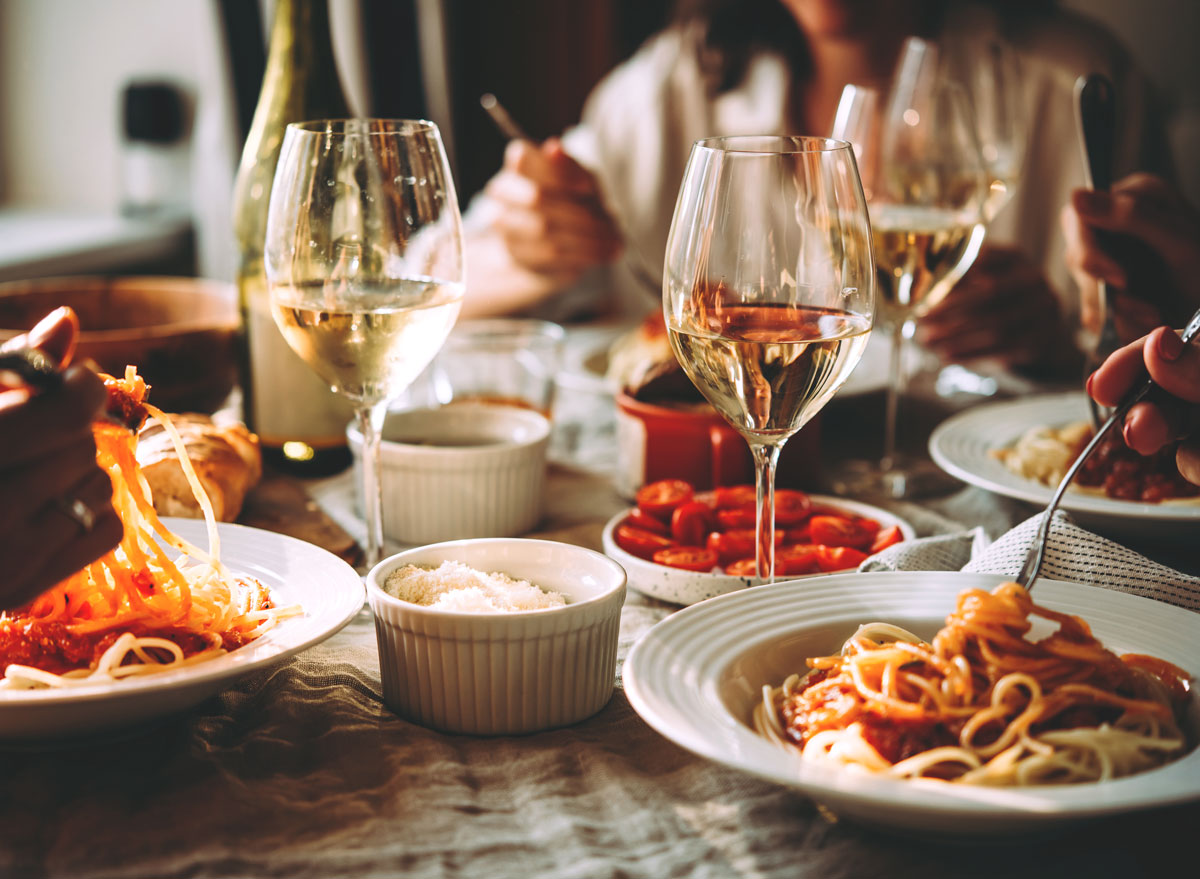
Whether you cooked at home or went out to eat, portion control can determine what happens with your waistline. Remember, even virtuous foods have calories! Half of your plate should be filled with veggies and the remaining half should hold a cell phone-sized serving of lean protein, a fist-sized serving of grains, and a bit of fat no larger than the size of your pointer finger. If you went out to eat, even once, there’s a good chance you loaded up on way more than what you needed.
You scarfed down the sugar
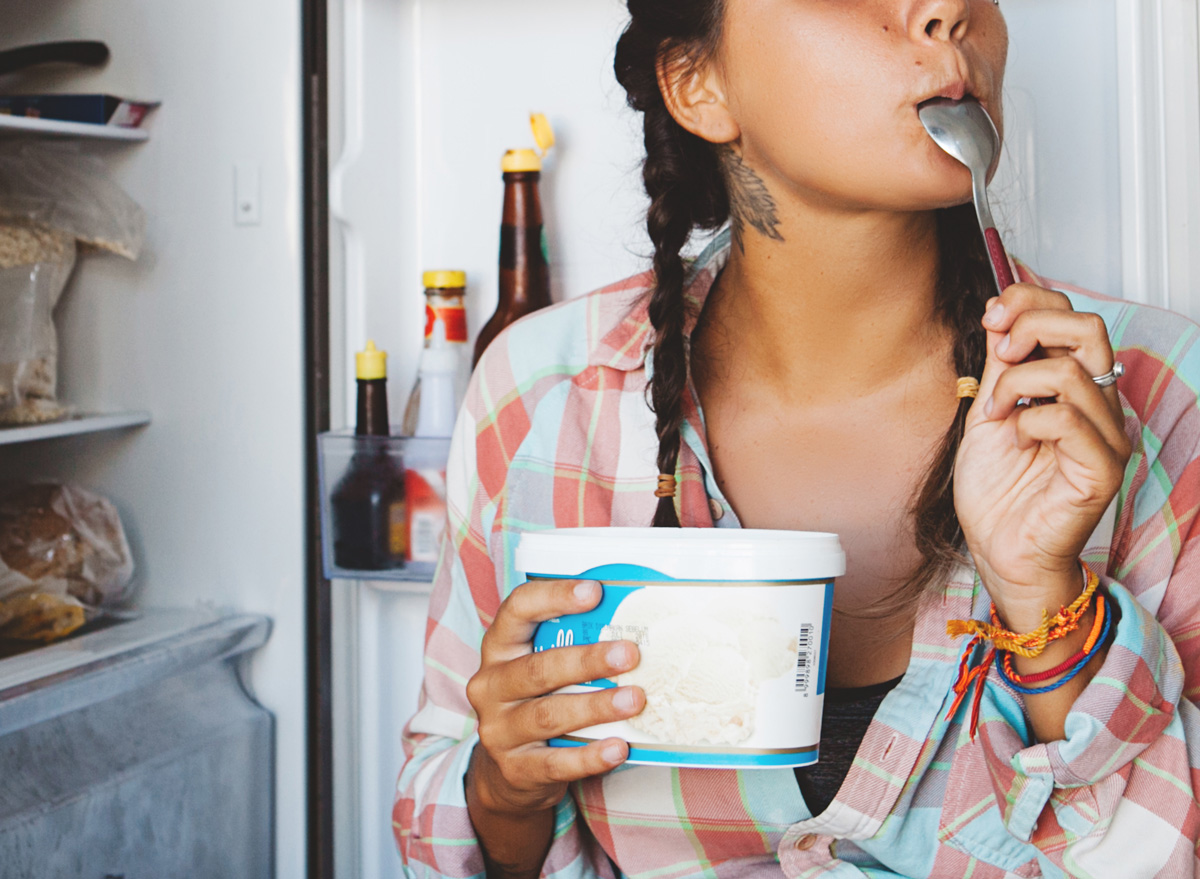
Seriously! That cupcake at work isn’t doing any favors to your waistline. Having that sugar sitting your system could be why you’re feeling heavier. Your fat cells work like a savings bank, says Napoli. And when you have too much energy than you need to burn off, it ends up being stored as fat, which is how your weight slowly creeps up. Need to cut back? Let us help you with these 30 Easy Ways to Stop Eating So Much Sugar.
You’re snacking too healthily
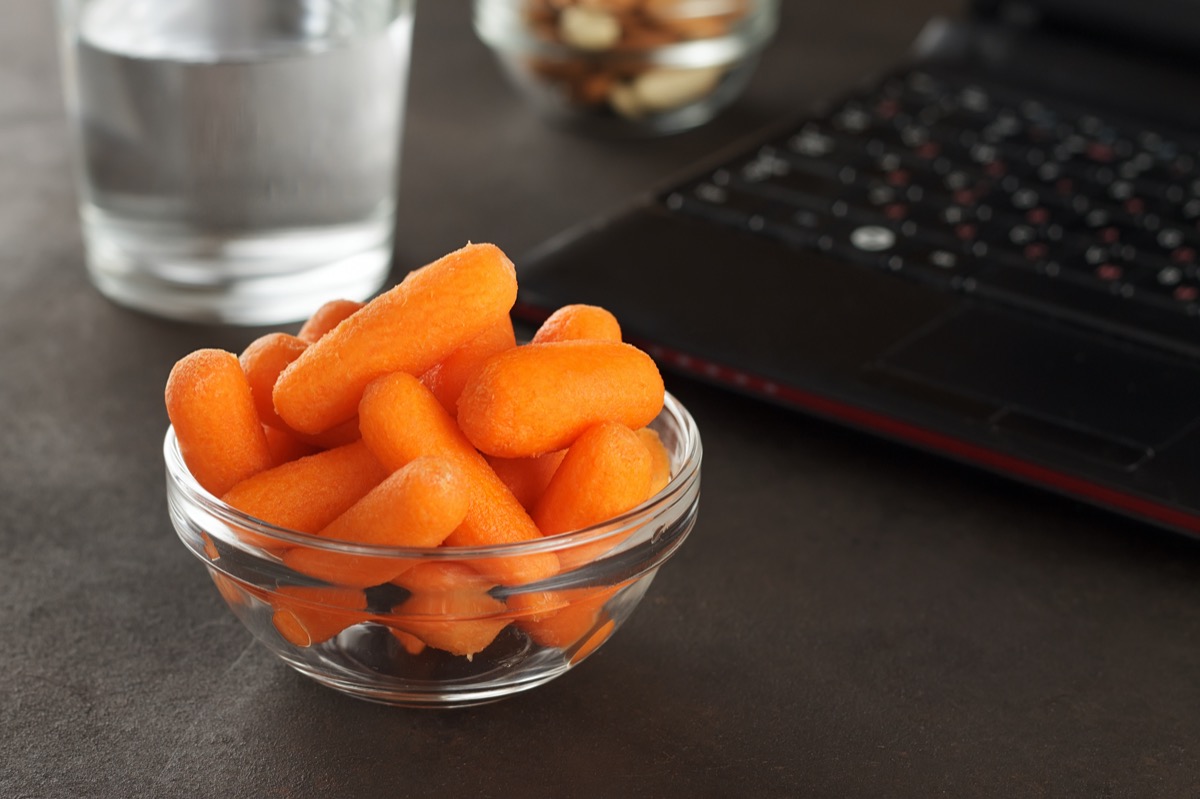
“When my clients feel like they aren’t able to enjoy something indulgent from time to time, it often leaves them with hard-to-ignore cravings,” says registered dietitian Leah Kaufman, MS, RD, CDN of Leah Kaufman Nutrition. “For this reason, I allow my patients to eat 100 discretionary calories each day. It allows them to satisfy their cravings without falling off track.” Nine Peanut M&Ms, 12 gummy bears, and a single Reese’s Peanut Butter Cup all come in right around 100 calories. For more healthy snack ideas, check out these 50 Healthiest Snacks to Eat for Weight Loss!
You’re on certain medications
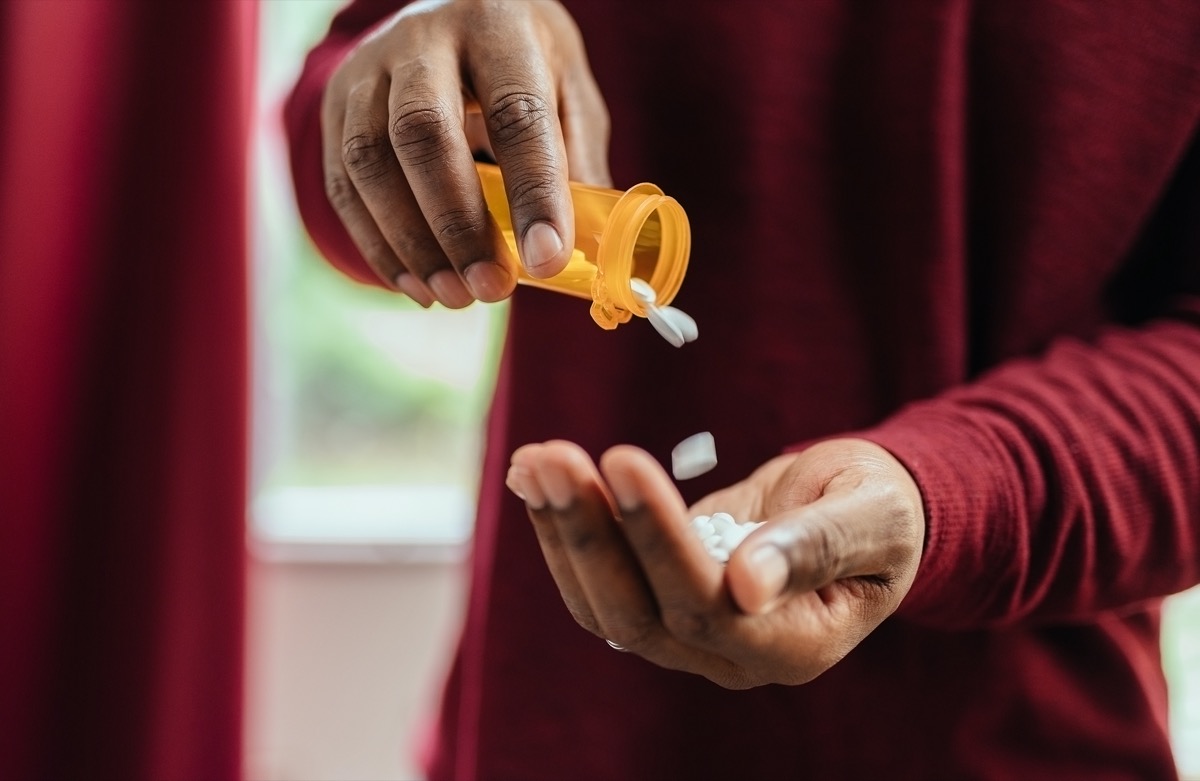
Some birth control pills, steroids, and even antidepressants can change how our body naturally removes fluids, says Sharp. Even if you changed or started meds weeks ago, the side effects could either be kicking in or fluctuate, depending on your own body’s hormonal cycle.
You have all your workouts scheduled in advance
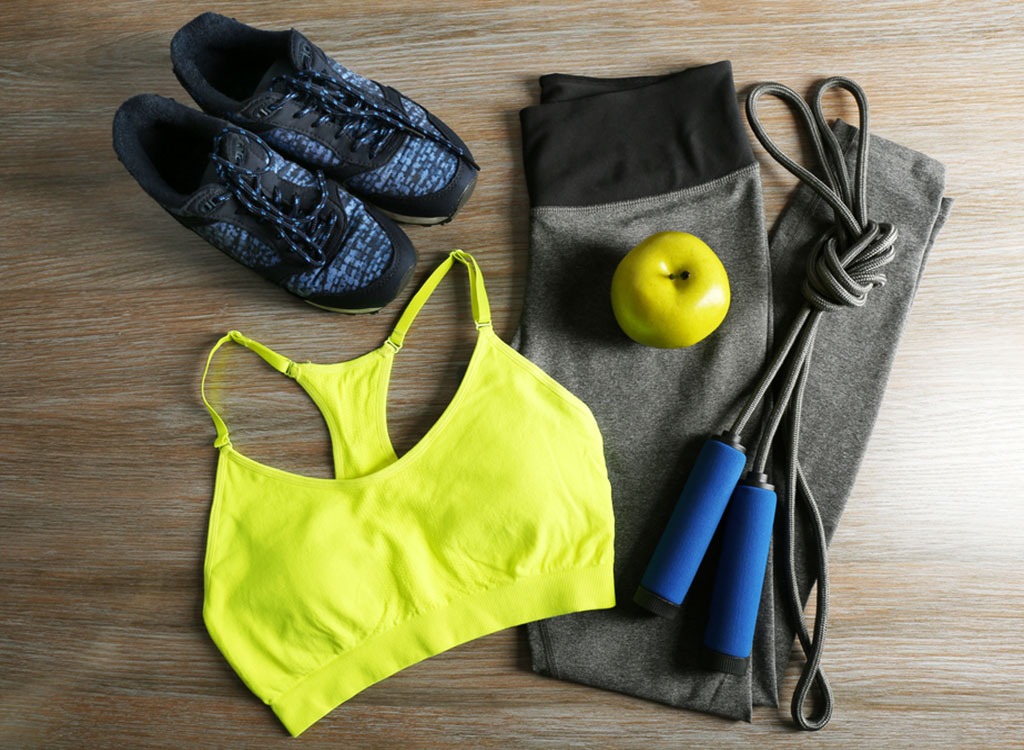
There’s no denying that working out is an important weight loss factor, but oddly enough, thinking about your upcoming sweat sessions too often can make it more difficult to lose weight. Research indicates that when your favorite spin class is always on the brain, you apt to consume more calories—likely because you assume you’ll just blast it away during the hill and sprint sections of your class. We know it sounds ridiculous but there are plenty of fitness mistakes that prevent weight loss.
You’re wearing heavy clothes and jewelry on the scale
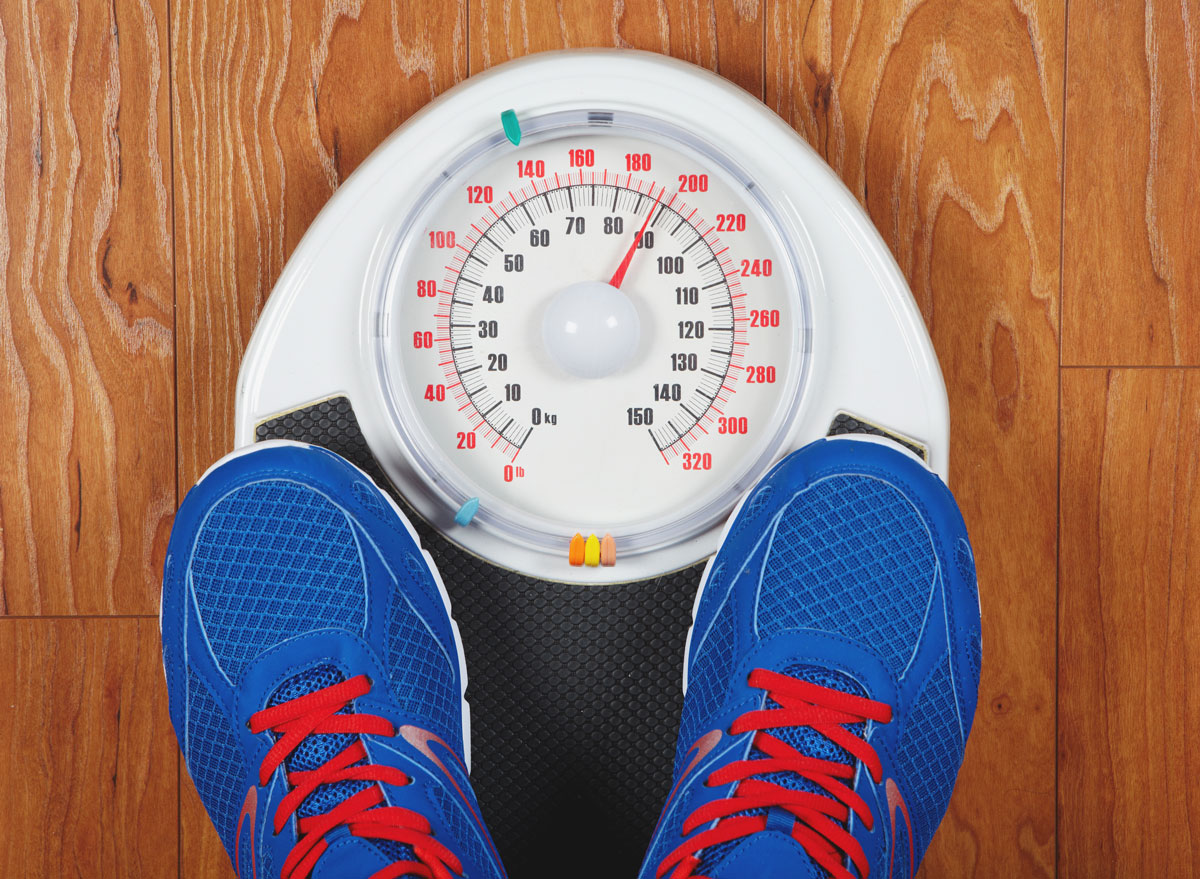
Wearing a necklace and underwear while weighing yourself may feel like it’s not much, but every little thing makes a difference. When you weigh yourself with clothes, shoes, or jewelry, the tiny ounces can add up. Also, don’t forget that weighing yourself after a shower can also result in a higher number, due to the water that’s been absorbed into your skin immediately beforehand.
You take your food ‘to go’
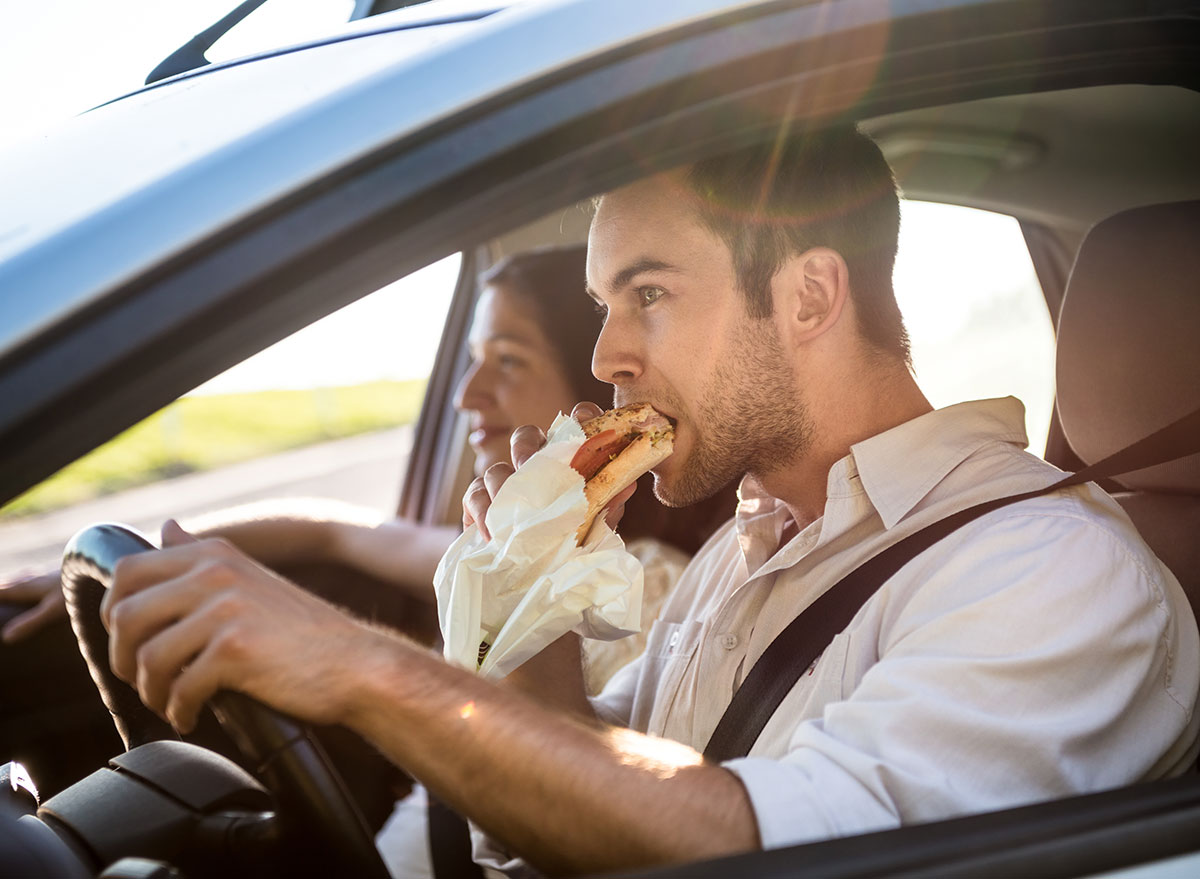
If you think that snacking while running to work is a great way to multitask, then think again. A study published in the Journal of Health Psychology found that dieters who ate while walking ended up consuming five times the number of calories than women who ate while talking. There’s no scientific reason as to why these dieters overeat, but the researchers believe that it could be because walking is either associated with exercise—so perhaps people, therefore, saw food as a reward—or because they were too distracted to feel satiated in the first place.
You packed on the carbs

Eating pasta and bread isn’t making you fat, but they do contribute to water weight, says Sharp. When consuming carbohydrates, they get stored as glycogen, which is a storage form of carbs that makes you hold more water. One gram of carbs tends to store 3-4 grams of water, so it adds up pretty quickly.
You ate mindlessly in front of the TV
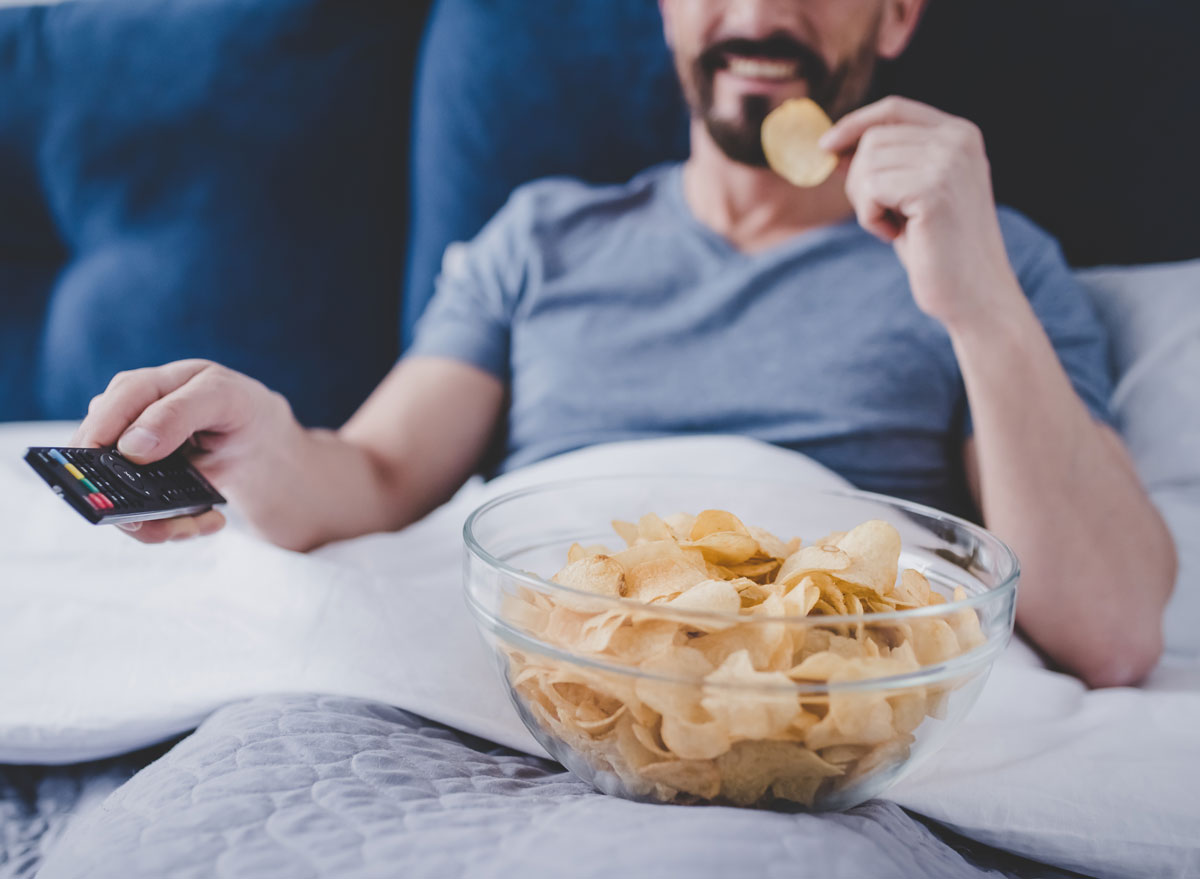
A meta-analysis published in the American Journal of Clinical Nutrition shows that people who eat while watching television consume significantly more calories than non-television watchers. Not only that, but distracted diners also go on to consume an average 25 percent more total calories over the course of the day than those who dine unplugged. High-action television is particularly fattening. A study published in JAMA Internal Medicine found people consumed 65 percent more calories from snacks while watching a high-action, high-volume Hollywood flick than viewers who munched while watching an interview. Researchers say the more distracting a TV show, the less attention people pay to eating, and the more they eat. So, turn off the tube and savor a meal in silence. It’s one of the pleasures of mindful eating—a form of food meditation that’s associated with weight loss.
It’s time for your period

Aunt Flo can be a real pain sometimes. Right before that time of the month is when women notice feeling a little bigger than normal. The balance of estrogen and progesterone changes during our menstrual cycle, which leads to uncomfortable bloating and water weight says Sharp. While bloating goes away on its own, you can at least soothe the period pains with 8 Foods that Ease PMS Symptoms.
You ate low-fat foods
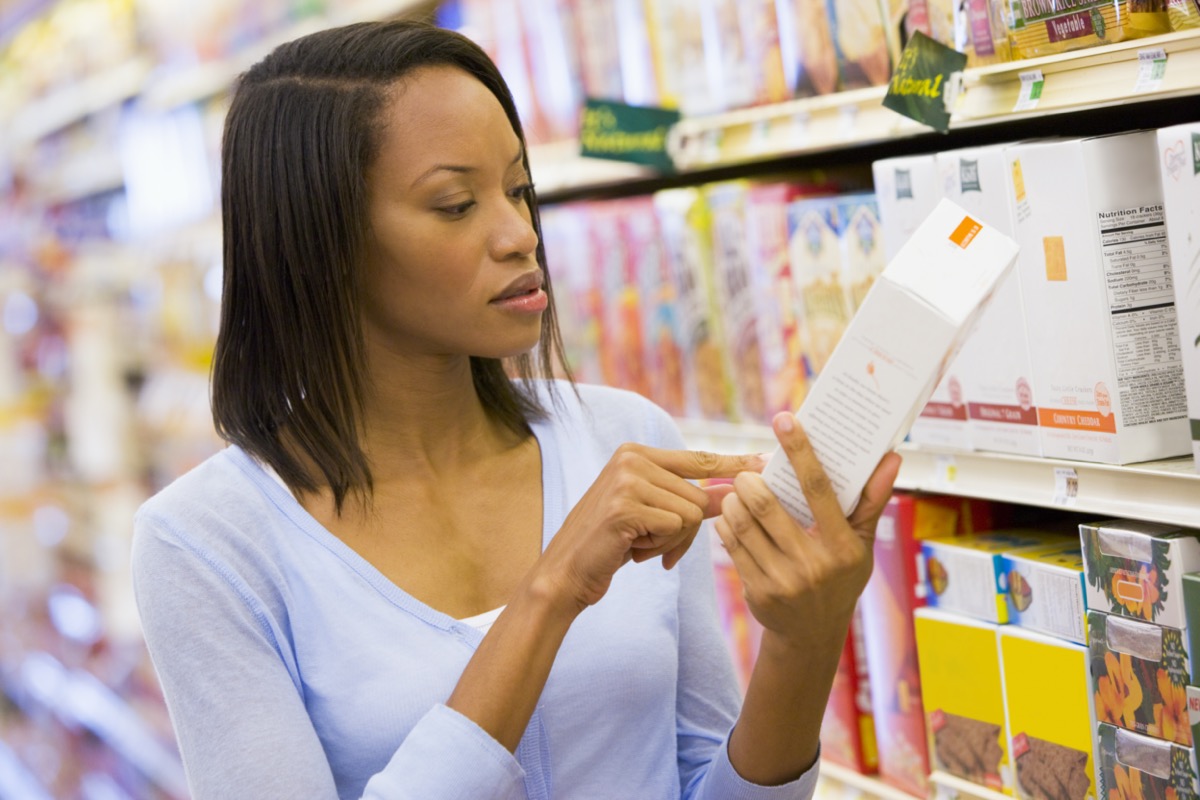
It sounds crazy, but stop buying foods marketed as low-fat or fat-free. Typically, they save you only a few calories and, in doing so, they replace harmless fats with low-performing carbohydrates that digest quickly—causing a sugar rush and, immediately afterward, rebound hunger. Research published in The Journal of Nutrition found that meals that limited carbohydrates to 43 percent were more filling and had a milder effect on blood sugar than meals with 55 percent carbohydrates. That means you’ll store less body fat and be less likely to eat more later. Another way to keep yourself from snacking later in the day? 30 Hacks to Feel Full When Trying to Lose Weight.

